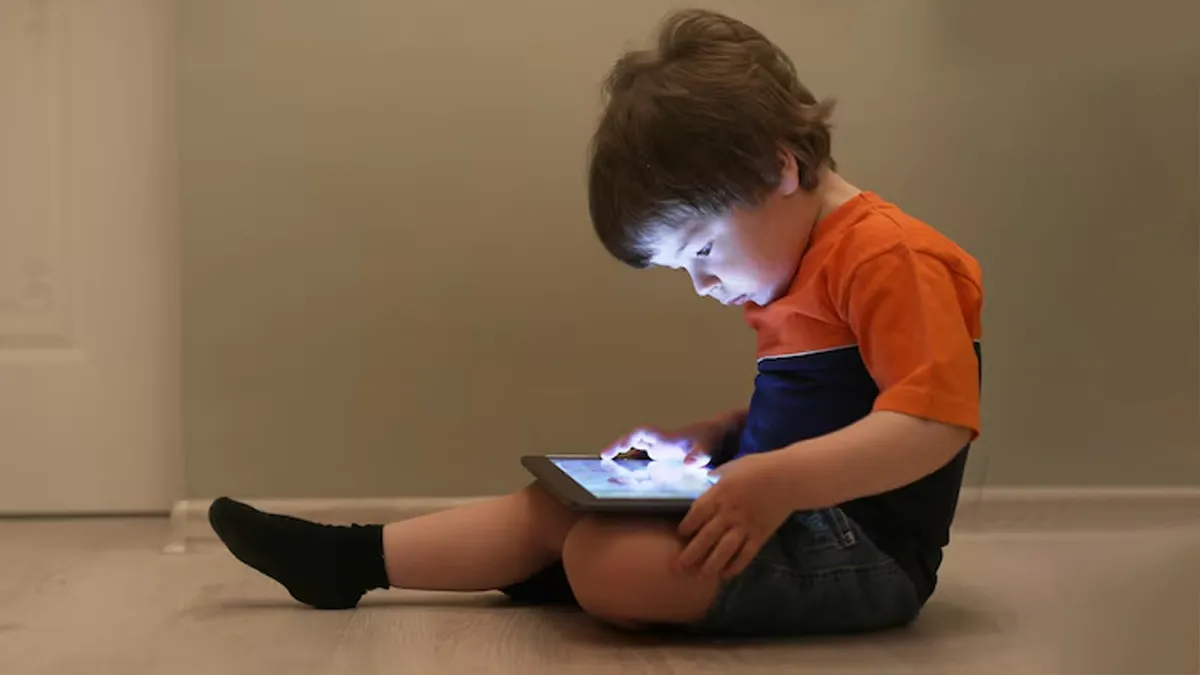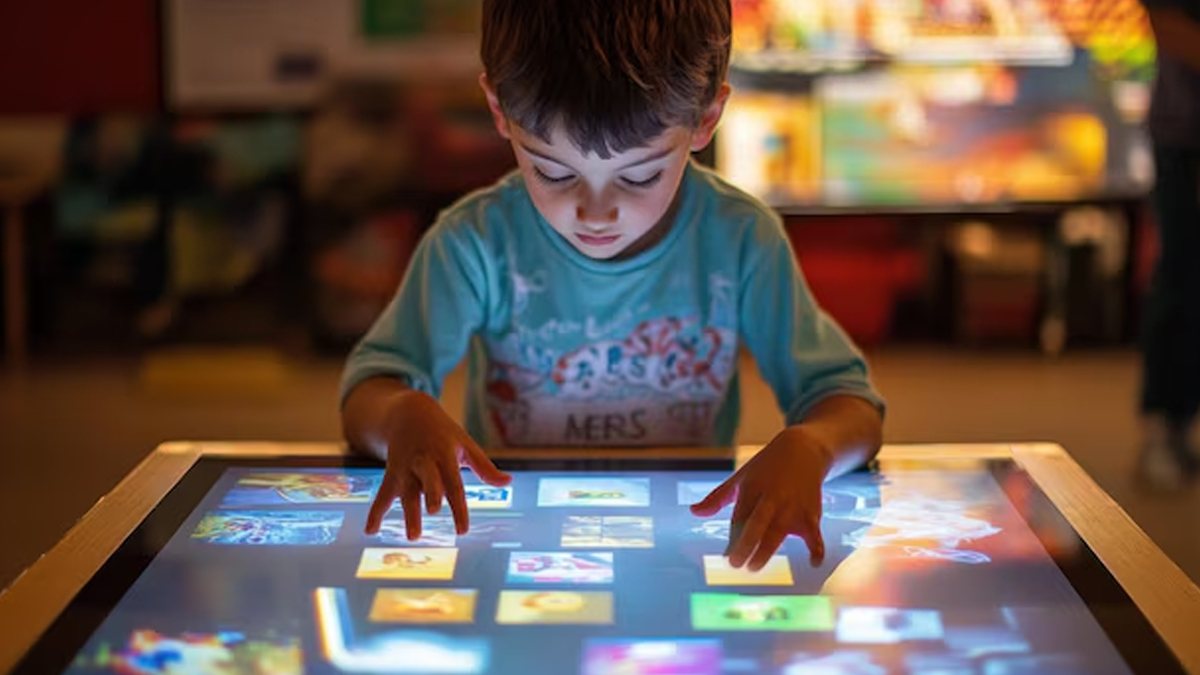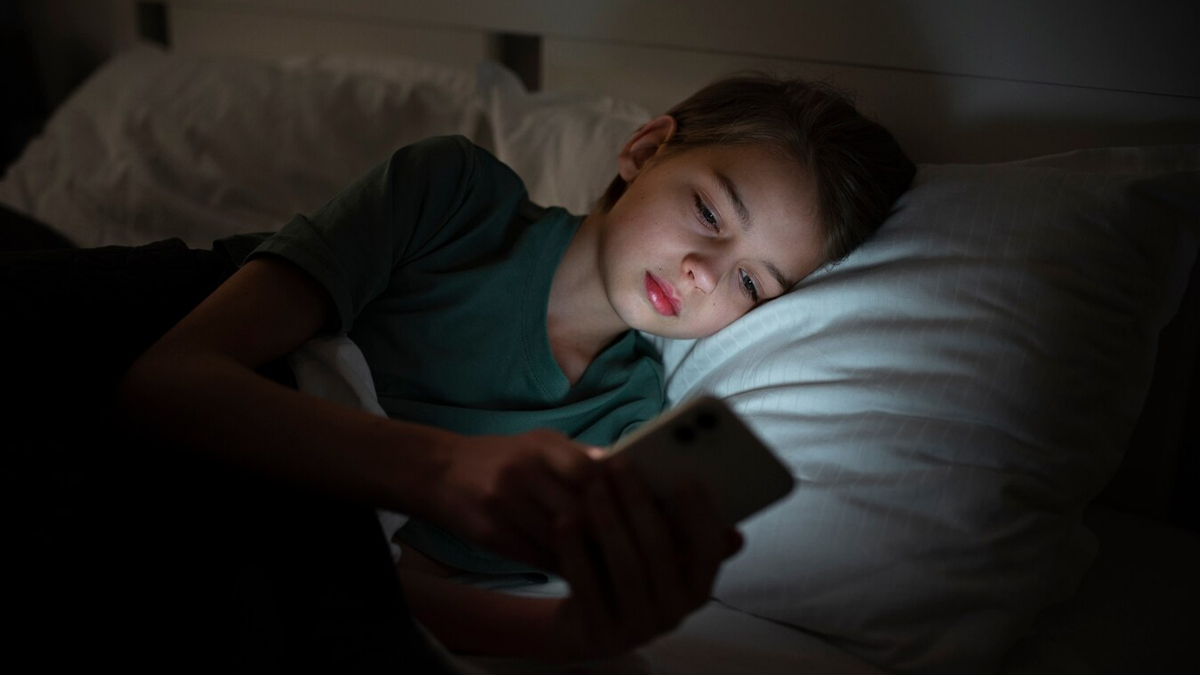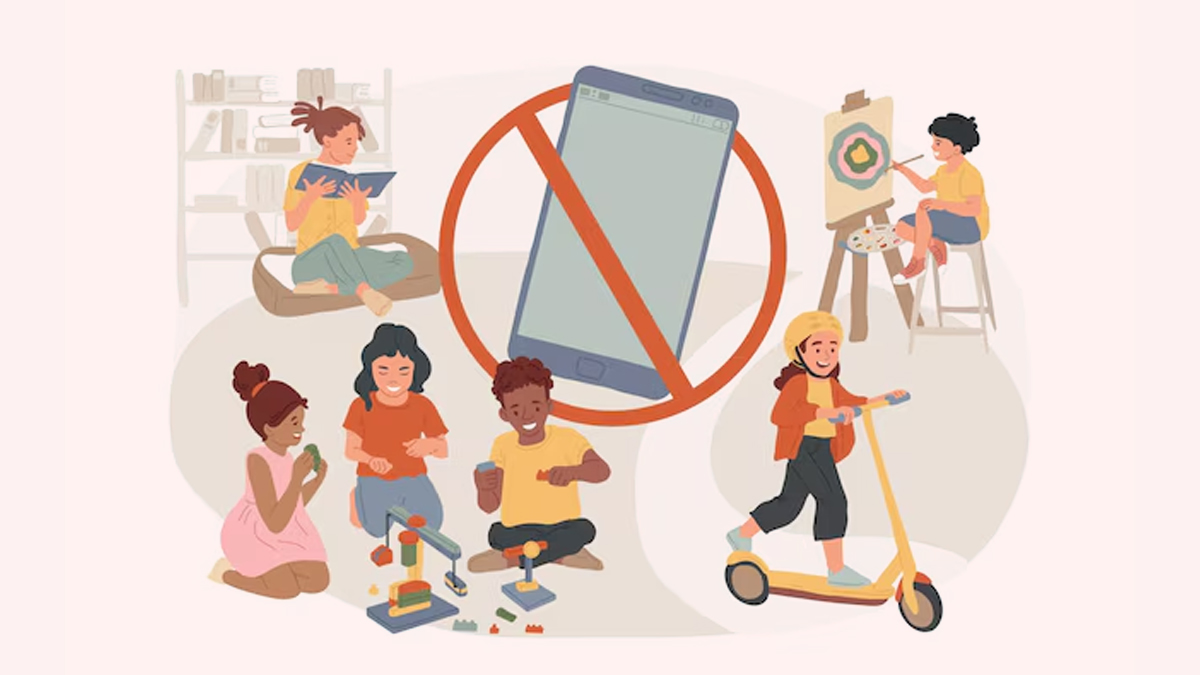
Screens are now present in every part of a child's routine, such as learning, playing, and communication. Devices are handed over in waiting rooms, at meal tables, and during travel. Children are watching, swiping, or scrolling at an age when interaction with people and physical surroundings should be more frequent. This change has influenced how they behave, learn, and respond to their environment.
Table of Content:-
CHECK YOUR
MENTAL HEALTH

This time in our "Mental Health Matters" campaign, we reached out to Pritika Singh, Mental Health Expert, CEO, Prayag Hospital Group, to understand the impact of screens on the mental health of children.
According to a 2023 study, excessive screen time, especially watching television, is negatively related to the development of physical and cognitive skills. Furthermore, high screen time is associated with issues, such as obesity, sleep disturbances, depression, and anxiety.
Infants and Toddlers

"Young children, especially those under two years of age, gain little to nothing from screen content. At that stage, their brains respond best to human voices, eye contact, and movement. Watching a video or listening to recorded speech does not have the same effect on the brain as real interaction," said Singh. Language, emotional connection, and social learning happen through people, not machines. Babies learn when someone responds to their actions and expressions in real-time. No screen can offer that kind of feedback.
When screens replace face-to-face time, children miss out on the chance to pick up tone, expression, and gesture. These are the building blocks of empathy and communication. Children exposed to higher screen time at an early age often take longer to speak and may have trouble understanding emotional cues.
Short Attention Spans and Overstimulation
"Screens show rapid cuts, flashy visuals, and constant changes. These features are designed to hold attention but do not train the brain to focus. When children are used to this type of input, they find it hard to concentrate in situations that demand sustained effort, like reading a book, listening in class, or solving problems," added Singh.
Children need time to process what they see and hear. Fast-moving content reduces this time. As a result, they may struggle to follow slower activities that are important for thinking.
Also Read: The Screen-Time Side Effect: How Digital Eye Strain Is Driving A Myopia Surge
Impact on Social Development and Empathy
Reading a person’s face and tone is how children understand feelings. This does not happen on a screen. Texts, emojis, and avatars do not replace real expressions or body language. Face-to-face interaction is still the most effective way for children to learn how to respond to others. Without enough of it, their ability to show empathy or manage relationships may be limited.
When children spend more time with screens than people, they also miss out on practising turn-taking, listening, and resolving disagreements. These are learned through direct experience, not through scripted dialogues or digital stories.
Sleep Disruption and Behaviour Changes

"Using screens in the evening affects how children fall asleep and how deeply they rest. The light from phones or tablets delays melatonin release, making it harder for the brain to shift into a sleep state. The content, especially games or fast-moving videos, keeps the brain wired when it should be slowing down," highlighted Singh.
When this becomes routine, sleep quality drops. Children start the day feeling tired. Fatigue shows up as irritability, poor focus, and inconsistent moods. Some may cry easily, get angry without clear reason, or lose interest in daily activities. Sleep loss over weeks or months begins to affect how they handle stress and social situations.
Digital Stress Among Adolescents
"Older children face a different set of problems. As screen time moves toward online messaging, social platforms, and multiplayer games, exposure increases, so does the pressure. Constant comparison with others, public reactions to posts, and fear of missing out create silent stress," added Singh. Even when children do not talk about it, their behaviour reflects it: frequent mood swings, low self-worth, or withdrawal.
While these platforms are often seen as a way to stay connected, they don’t offer the same kind of support as in-person friendships. A like or reply on a post doesn’t replace real presence or understanding. Over time, this can leave children feeling more alone, not less.
Also Read: Are Screens Harming Your Toddler? Paediatrician Highlights Dangers of Excessive Device Use
Reduced Attention and Emotional Control

Screens can shorten attention spans, particularly in children who use devices for extended periods without breaks. In classroom settings or at home, they may struggle to focus on tasks that require sustained attention. Activities like listening to instructions, waiting for their turn, or completing homework can become challenging.
Emotional regulation is closely linked to attention span. When the mind is accustomed to rapid changes and instant feedback, delays or mundane tasks can be difficult to tolerate. As a result, children may develop an expectation of constant stimulation, leading to restlessness or frustration when it's absent, often without understanding why.
Strategies for Promoting Healthy Screen Habits

- Routine matters, therefore, sleep, meals, schoolwork, and play should have a fixed place in the day. When these are predictable, screen use becomes easier to limit. Keeping phones and tablets out of bedrooms, turning them off during meals, and setting a shutdown time in the evening are basic but effective steps.
- Also, children are more likely to accept limits when adults follow them too. If phones are checked during dinner or late at night by parents, children see these habits as normal. Change has to start from the top.
- Moreover, what children see is as important as how long they watch. Loud, fast, or emotionally intense content can overload their nervous system. Some shows and games are designed to hook attention but do not build any useful skills or understanding. Others may be violent or promote shallow ideas of popularity and success.
- Furthermore, adults should monitor what their children watch and be aware of the content shaping their thinking. Discussion helps. Talking through what they have seen or asking how they felt about it turns screen time into a shared experience rather than an isolated one.
- Boredom is necessary too. Children who do not always have a screen in front of them begin to explore their surroundings and find ways to entertain themselves. Drawing, role play, helping with simple chores, and even just lying around thinking are better than passive viewing.
- Without time away from screens, children lose touch with how to manage stillness. Giving them time to be off-screen, not as punishment but as a normal part of life, is one of the most effective things a parent can do for their emotional and mental development.
Bottomline
Singh concluded, “Screens are part of modern childhood, but their use must be managed with care. The brain develops based on what it experiences. If screens dominate those experiences, the brain adapts to that style of interaction, quick, surface-level, and solitary. Balanced use, clear boundaries, and real engagement with people are the most effective ways to protect children's mental health and development.”
[Disclaimer: This article contains information provided by an expert and is for informational purposes only. Hence, we advise you to consult your professional if you are dealing with any health issue to avoid complications.]
Also watch this video
How we keep this article up to date:
We work with experts and keep a close eye on the latest in health and wellness. Whenever there is a new research or helpful information, we update our articles with accurate and useful advice.
Current Version